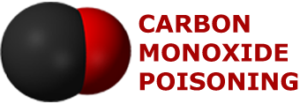A recent study has found that an anti-angina drug may prevent the fatal heart arrhythmia that is caused by carbon monoxide poisoning, according to MedicalXpress.com.
http://medicalxpress.com/news/2012-08-anti-angina-drug-effects-carbon-monoxide.html
The research was done by an international team of scientists, headed by the University of Leeds in England. The story pointed out that many patients who’ve been exposed to dangerous levels of carbon monoxide develop irregular or abnormally paced heartbeats. That arrhythmia can lead to cardiac arrests — and death.
And that takes us to ranolazine, whose trade name is Ranexa. It won approval in the United States in 2006 to treat angina, and it does so “by targeting a sodium channel in the hearts — the same channel that can also induce irregular heartbeats,” according to MedicalXpress.com.
Researchers found that carbon monoxide poisoning “caused a key membrane channel carrying sodium ions through the heart to stay open for longer,” MedicalXpress.com said, which resulted in calcium building up, disrupting the heart’s rhythm.
The part of the research team in France tested ranozaline on rats who were exposed to carbon monoxide, and discovered that the drug reduced arrhythmia in the rodents.
Ranolazine needs to be tested on humans now, and there is already some speculation that it may be able to help workers who are exposed to carbon monoxide on a regular basis, such as firefighters, according to MedicalXpress.com.
One of the researchers said that in this case, an old drug may be able to do a new trick.

Leave a Reply
Want to join the discussion?Feel free to contribute!